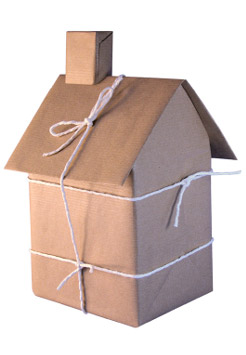Unethical Practice
#3:
Sellers’ agents who favor certain buyers over others.
In
a slow market, agents are usually thrilled to get any offers they
can. But if multiple offers are expected on a
property—say because the market is hot or the property is especially attractive—agents
sometimes tip the scales in favor of certain buyers.
 |
Sellers'
agents have an especially
strong incentive to help their own buyers come up with the winning
offer--this allows them to "double-end" the deal and get a much
larger commission. (Note that
some states
don't allow agents to represent both sides.) Agents
may also favor the buyers of other agents in their
brokerages, in hopes that the favors will be returned
someday. Agents may also try to sabotage offers by
out-of-area brokerages to prevent them from elbowing in on their territories, or by
non-traditional brokerages who break ranks by offering buyer rebates to their clients.
|
Unfortunately,
discriminating against certain buyers is fairly easy for agents to pull off. If your listing
agent is discouraging offers from other agents, you’ll probably never know
about it—it’s a licensing violation in many states for a
buyers’ agent to communicate directly with you to complain about
being shut out.
Here’s what to watch for:
Pocket listings
The most
effective way for a brokerage to represent both the seller and the
buyer is create a so-called pocket listing by not putting the
property on the Multiple Listing
Service (MLS).
Brokerages sometimes get
sellers to agree to pocket listings by offering them special
commission breaks. Perhaps the seller need pay only a 5%
commission if the brokerage finds a buyer while it’s a pocket
listing, but a 6% commission if it’s sold while listed on the MLS.
Hidden listings
Most sellers won’t stand for
pocket listings, and wisely insist that their properties be posted on the
MLS. But there are other tricks agents can use to hide their listings
from other agents:
-
An agent can put the
property on an out-of-area MLS. This makes it hard for local
agents to find it.
-
An agent can prevent a
listing from populating to other websites, like the websites of
other brokerages, or Zillow.com,
Realtor.com,
Yahoo.com,
Oodle.com, and so forth.
-
An agent can “forget” to
put a key in the lockbox.
-
An agent can put
unflattering photos on the listing.
-
An agent can downplay
the home’s best features.
|
 |
Meanwhile, the agent gets on
the phone and calls her own buyers to tip them off about her
hot new listing.
Sabotage and misinformation
If multiple offers come in
for a property, here's how an agent can put a favored
buyer’s offer on top of the pile:
-
An agent can tell the
favored buyer about the other offers, so the buyer can win with
just a minimal overbid.
-
An agent might tell
other agents that the seller has only received only “low-ball” offers. This will likely keep the rival offers low.
-
An agent can sabotage
other agents by telling them that the seller “will likely”
respond to all offers with a “multiple counter” asking for a
highest and best offer. This will likely elicit low offers,
since the buyers won’t want to reveal their highest offer until
the second round. But if the agent’s favored buyer is on top in
the first round, there is no second round.
-
Agents can tell other
agents that another offer has already been accepted and that
they haven’t gotten around yet to changing the property’s status
on the MLS.
-
Agents can turn off
their fax machines so that offers can't come in.
Discouraging out-of-area agents
MLSs,
local associations, and brokerages sometimes
go out of their way to keep out-of-area
agents and discounters from elbowing in on their territory. Here’s
how agents do their part:
-
Some agents may not
return calls from agents with out-of-area phone numbers.
-
Some
brokerages insist that agents come to their offices to pick up
disclosures and present offers, even though the standard
practice is to transmit this information by email or fax.
-
Some MLSs are very
small, which means an agent must be a member of a small club in
order to gain access to homes through Realtor
lockboxes.
-
Listing agents sometimes
refuse to unlock doors for
buyers represented by out-of-area agents, or they refuse to
put out more commonly used lockboxes, or they refuse to allow
buyers who are represented by discounters or out-of-area agents
to attend their open houses.
How to
protect yourself
-
If you're a seller and
you expect multiple offers, ask
that all offers be sent to you and only you.
In a world of emails and
faxes, there’s no longer any good reason for offers to be funneled
through sellers’ agents. Ask your listing agent to instruct
buyers’ agents to submit their offers directly to you and only to
you by either email or fax. After the offer deadline,
you can sit down with your agent and go over the offers.
Controlling your agent’s
access to offers not only ensures against the agent having loose
lips, it can also give you a strategic
advantage in negotiations.
The reason is that in
multiple-offer situations, agents often get phone calls from other
agents asking about the other offers. I find that agents often
share more information than they should, and I suspect that most
sellers would be better off keeping their agents in the dark.
Consider these scenarios:
-
You get no
offers. If another agent calls to ask if you’ve received any
offers, your agent can honestly say, “I don’t know—the seller is
collecting all offers.”
-
You get a low
offer. Call your agent and say you’ve gotten an offer, but
don't disclose the amount. The agent
can then call other agents to say there’s an offer on the table. If
they ask what the offer is, the agent can say “I don’t know—the
seller is collecting all the offers.”
-
You get an offer
that’s at or above asking price. Here, you might want to tell your
agent more information about the offer, so the agent can tease out
higher bids.
Important: It's fine
to keep your agent in the dark about offers, but it's never okay to lie
to your agent about them. Lying about offers is a material
misrepresentation that can result in a lawsuit. It's also the wrong
thing to do.
-
Buyers: If you suspect that
the listing agent is suppressing your offer, contact the seller
directly--but be careful.
Licensing rules won't let
your agent contact the seller directly, but there's nothing to
prevent an unlicensed buyer from doing so. But be very
careful--any claim you make against the listing agent can expose you
to a very costly lawsuit. I would simply leave a gift of a
small potted plant on the front porch with this kind of message:
"Thanks again for letting us see your lovely home. Hope we're
the winning bidders! -- The Smiths." Don't do anything,
though, if another offer has already been accepted, since that could
invite yet another lawsuit for tortious interference in a
contractual relationship. Instead, wait until escrow has
closed and see if your offer was substantially higher than the sales
price. If it was, file a complaint with your state's real
estate licensing board.
-
Don’t let your agent suppress your address from the MLS.
I’ve always been mystified
as to why sellers would want to conceal the address of the
properties they’re trying to sell, so I once called a listing agent
to ask why many of his listings weren’t displaying addresses on
public websites. He said that his clients were worried about
identity theft and privacy.
Unless
you're a celebrity or in a witness-protection program, I still don't
see why you'd want to suppress your property's address. It makes it much harder for buyers to find you and your
home, and could cost you a lot of exposure.
-
Insist on getting as much online exposure for your property as
possible.
Verify that your property is
being listed on the appropriate local Multiple Listing Service (MLS)
and, if that MLS is small, any neighboring MLSs to which your agent
belongs. Check to make sure it’s also on
Realtor.com and other
secondary websites, like Zillow.com,
Oodle.com, etc.
-
Insist
on at least one open house per month.
When asked about hosting
open houses, sellers’ agents sometimes let their clients in on a “dirty
little secret.” Open houses don’t benefit sellers, it turns out,
just agents—who use them to drum up new business. Your agent, of
course, will be reluctant to exploit you in this way.
Agents, though, have other
reasons for objecting to open houses. First, they require that
agents sacrifice valuable family time on Sunday afternoons.
Second, buyers who are able to search online for properties and
visit them during open houses are better able to make offers through
discount brokers and get buyer rebates, thereby cutting out
full-service buyers agents. Brokerages have a strong
incentive to object to this trend.
You can judge for yourself
whether open houses work by visiting a few in your neighborhood.
If they're well attended, they're probably worthwhile, even if
many of the visitors are "lookie-loos" and neighbors.
Open houses not only give homes exposure, but big turnouts can prod
buyers into acting quickly. I've had buyers buckle during
price negotiations when the sellers' agents announced upcoming
open houses--my buyers wanted to get their deals into escrow before
too many other people had a chance to see the homes.
Even if
your open houses are poorly attended, they can give your agent
valuable feedback about the strengths and weaknesses of your home,
and about whether it's appropriately priced.
|


